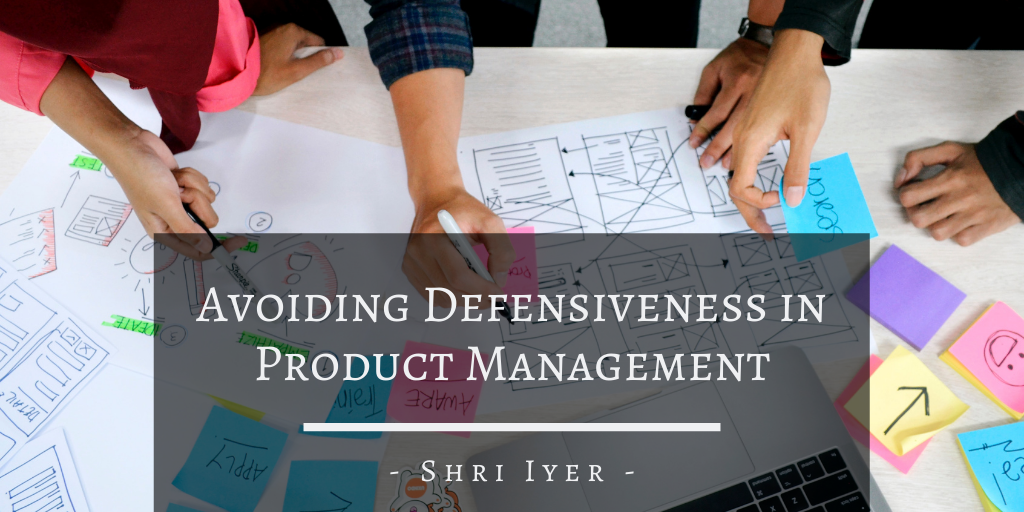Product Managers are symphonic conductors. One cue from their batons or hands can encourage sales, marketing, and development teams to do their parts, while an audience of stakeholders and prospective buyers listens intently. But what if one of these spectators criticizes the performance? Would the Product Manager explain that they aren’t the composer, that they can’t be expected to take the blame? Or would the PM already be watching the performance with a critical eye, wondering why certain key changes and melodic variations were chosen by the past overseer?
Defensiveness is a touchy subject in the world of Product. After all, accusing someone of being defensive leads to a knee-jerk reaction of—you guessed it—defensiveness. Before diving into the nitty-gritty of defensiveness, compare yourself to this quick self-diagnostic:
The Defensiveness Symptom Checker
If you have experienced three or more of these symptoms, you may have fallen into the defensiveness trap:
- Dismissing or changing the subject
- Arguing with the aid of a straw man (or similar fallacious reasoning)
- Becoming highly emotional
- Lying about or denying information
- Shutting down
- Taking the critique as a personal attack
- Shifting the blame to a different person
Have you been diagnosed with defensiveness? You aren’t alone. Product Managers are obligated, by nature, to defend their products. It’s just psychological. But what if that defense becomes a barrier, one that is impenetrable to any criticisms or thoughts? Keep reading to learn about some of the common causes of defensiveness, and how you can alleviate your symptoms.
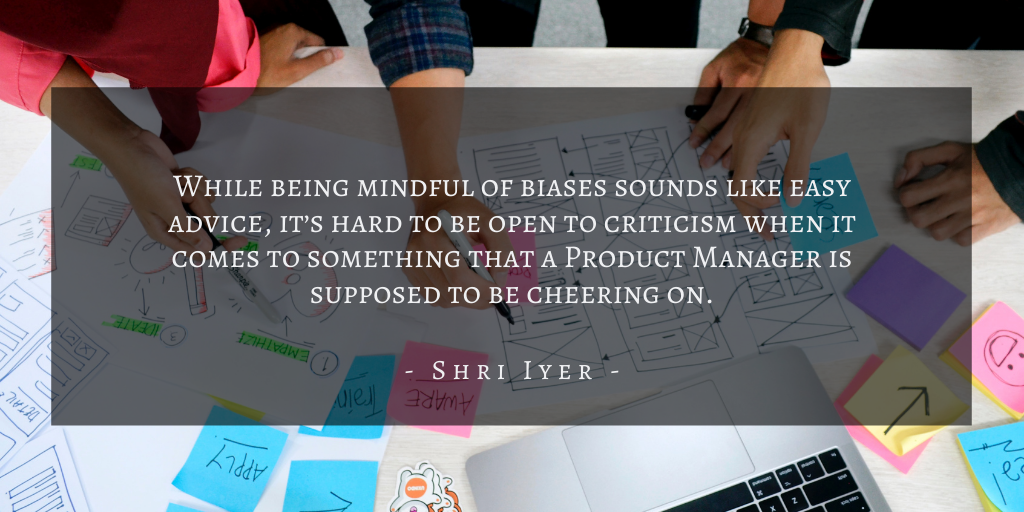
Why Do PMs Become Defensive?
As mentioned in the previous section, defensiveness is a psychological reaction. However, there are times when defensiveness comes hand-in-hand with product biases. PMs believe in their product, through and through; in some instances, such passion can lead to rationalization.
This defense mechanism triggers when individuals attempt to justify their line of thinking, even if cognitive dissonance warns that alternatives may bear more fruit. While being mindful of biases sounds like easy advice, it’s hard to be open to criticism when it comes to something that a Product Manager is supposed to be cheering on.
Keep in mind that Product Managers operate many moving parts, including resources, people, strategy, and vision. Product Management Leadership Coach Thor Mitchell emphasizes the importance of empathizing with your product and stakeholders:
“Owning your failures is a much better strategy for building confidence and trust amongst your team and your leadership than making excuses or pointing fingers.”
Remember—if you’re going to develop customer empathy (a necessary step to creating a great product), you’ll first need to hone your humility.
The Clever PM takes a “Warts and All” approach to Product Management and feedback. They admit how easy it is to let emotions override reasoning. No matter if a product is your own or inherited from elsewhere, negative feedback is something to be expected. It’s important to separate your emotions from the criticism. And while many critiques are to be taken with a grain of salt on standby, you shouldn’t drown criticisms out with an entire shaker’s worth.
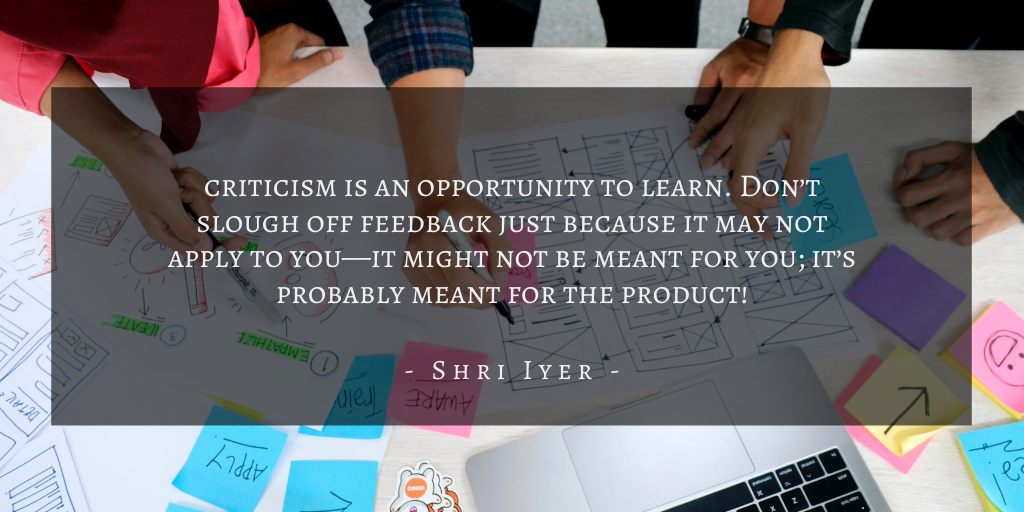
Remember, criticism is an opportunity to learn. Don’t slough off feedback just because it may not apply to you—it might not be meant for you; it’s probably meant for the product!
The “I” Word in Product Management
For many Product Managers, there comes a point in their careers when they take on a project that is well past its inception. Whether a PM has moved to a new company or taken on an unexpected role at their current one, it’s common to inherit a product from an entrepreneur or development team.
ProductPlan’s Vice President of Marketing, Andre Theus, warns that “inherit” has become a dirty word in Product Management:
“As the strategic leader of an inherited product, you cannot be held responsible for the product’s past, but you are responsible for the product now and in the future, regardless of what kind of baggage it comes with.”
Imagine that you’re demoing a feature that goes awry—it crashes, glitches, or just doesn’t work. It’s easy to admit that you were not in charge of this feature’s development. As true as this may be, it’s not the most responsible way of responding. In fact, it can be detrimental to the product and the trust you’ve built with stakeholders.
When you inherit the work of someone who hadn’t worn a “product hat,” you may come in with your own ideas of practices and policies that should work. Maybe you change systems, update data, or ignore old features in favor of adding new ones. However, that person may come back as a stakeholder and ask for things that could happen in the old system, but not the product that you’ve been developing.
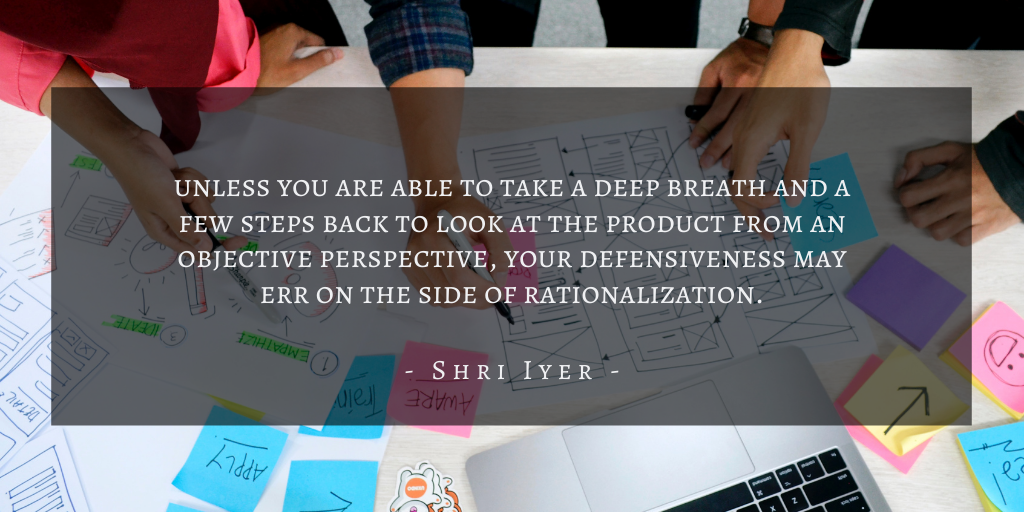
So, Is Defensiveness a Bad Thing?
Again, it’s natural for Product Managers to come to the defense of a product, It’s also natural to come to the defense of their strategies and ideas. Who knows the product better than the one managing it, after all?
But unless you are able to take a deep breath and a few steps back to look at the product from an objective perspective, your defensiveness may err on the side of rationalization.
How Product Managers Can Mitigate Defensiveness
Andre Theus’s five tips on this subject can be summarized with the familiar adage, “Slow and steady wins the race.” While he writes, “A true leader doesn’t make excuses—they make changes,” he also acknowledges that understanding problems and criticisms thoroughly is the first step on the path to success. A holistic approach is best, as it studies the product’s components, the product as a whole, and the stakeholders working together to influence the product’s actualized self.
Even if you’ve inherited a system that seems outdated or a roadmap that’s dizzying, don’t immediately take pen to paper and change things. Study the product and its history. Understand where it started and where it has come from. Consider the product from the perspectives of buyer personas, sales and marketing teams, and anyone else who bears a connection to the product.
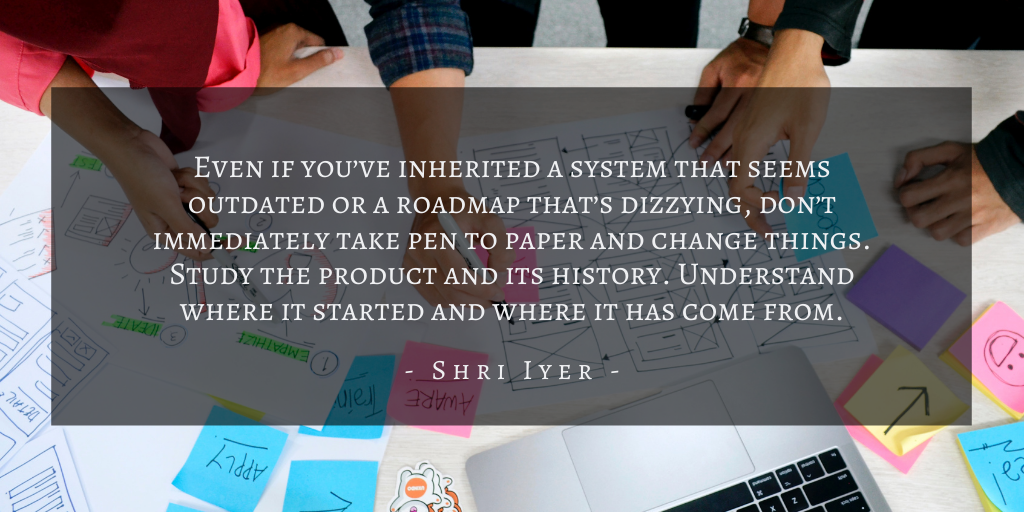
As Amplitude’s Head of Education John Cutler says, PMs are “thrown into the deep end” while also being “expected to exude certainty.” Add in looming deadlines and hectic schedules, and Product Managers have a ten-course meal’s worth of full plates. If a product feature isn’t up to snuff, it’s natural for PMs to come to the product’s defense, as well as their own. However, PMs must be wary that they do not tread into the “defensiveness” territory.
Accept feedback whenever it is offered. Figure out how, if possible, you can apply it to the product. Let criticism become part of the job. Let it help you, and your product, grow.

